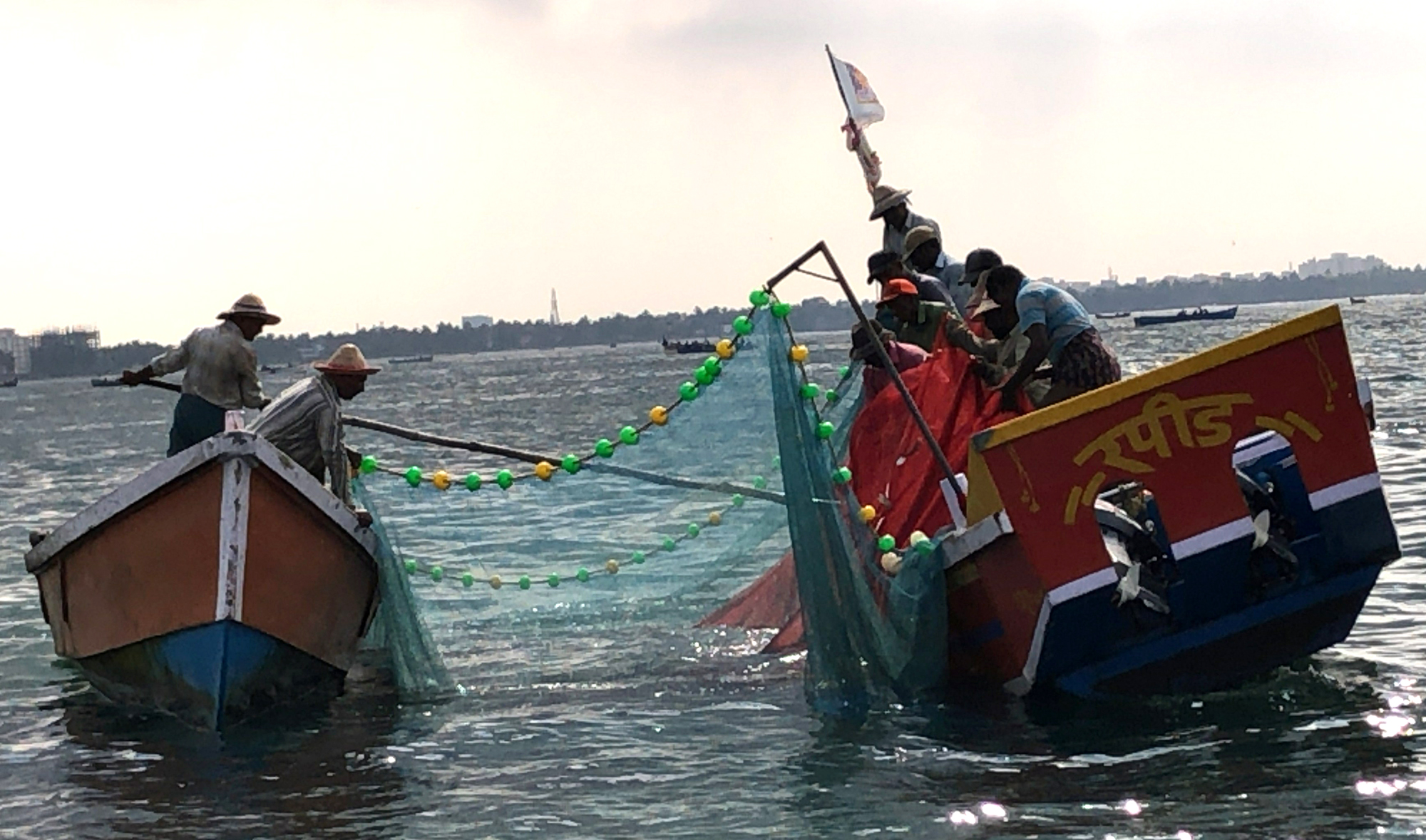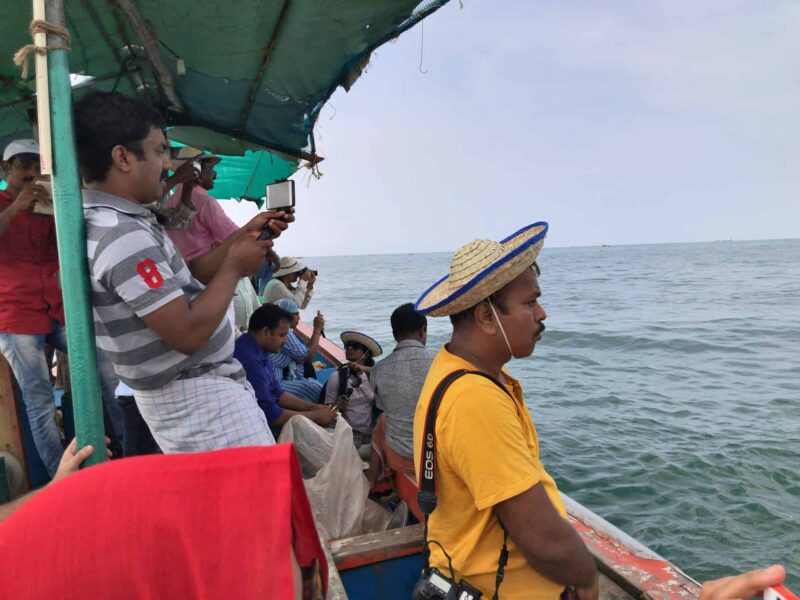Fishers are among the people whose livelihoods are badly affected by climatic and environmental change. In the tropics and sub-tropics in particular, fishers struggle with declining catch as fish move to colder waters. And it’s the small-scale artisanal fishers that often bear the brunt of these changes, since many of the subsidies meant to help them deal with declining revenues go disproportionately to large trawlers.
To look at how this situation is playing out off the Kerala coast in southwestern India, Internews’ Earth Journalism Network held a media workshop in Kochi, the largest city in Kerala and a bustling port, in late November.
EJN selected 12 journalists reporting from coastal regions in India to attend the three-day workshop, during which they had long interactions with scientists and researchers studying this subject in India and globally. They also met with experts from the government’s Central Marine Fisheries Research Institute.
After gaining some knowledge and grounding in the issues, the journalists went on a field visit hosted by the National Fishworkers’ Forum, the main organization of small and artisanal fishers in India, including a half-day trip on a fishing boat five nautical miles off the coast. The trip allowed the journalists to see for themselves the fishing methods used by these artisanal fishers and examine the catch they were getting – which included juvenile fish caught in part because of the types of small-mesh nets they use but also because of the lack of large fish available due to overfishing.

Following the workshop, EJN issued a call for proposals for story grants on Indian fisheries issues, hopefully ensuring that the much-neglected impacts of harmful subsidies, overfishing and climate change will see more and better media coverage in India.
(Banner photo: Workshop participants on the fishing boat field trip. Credit: Internews)
